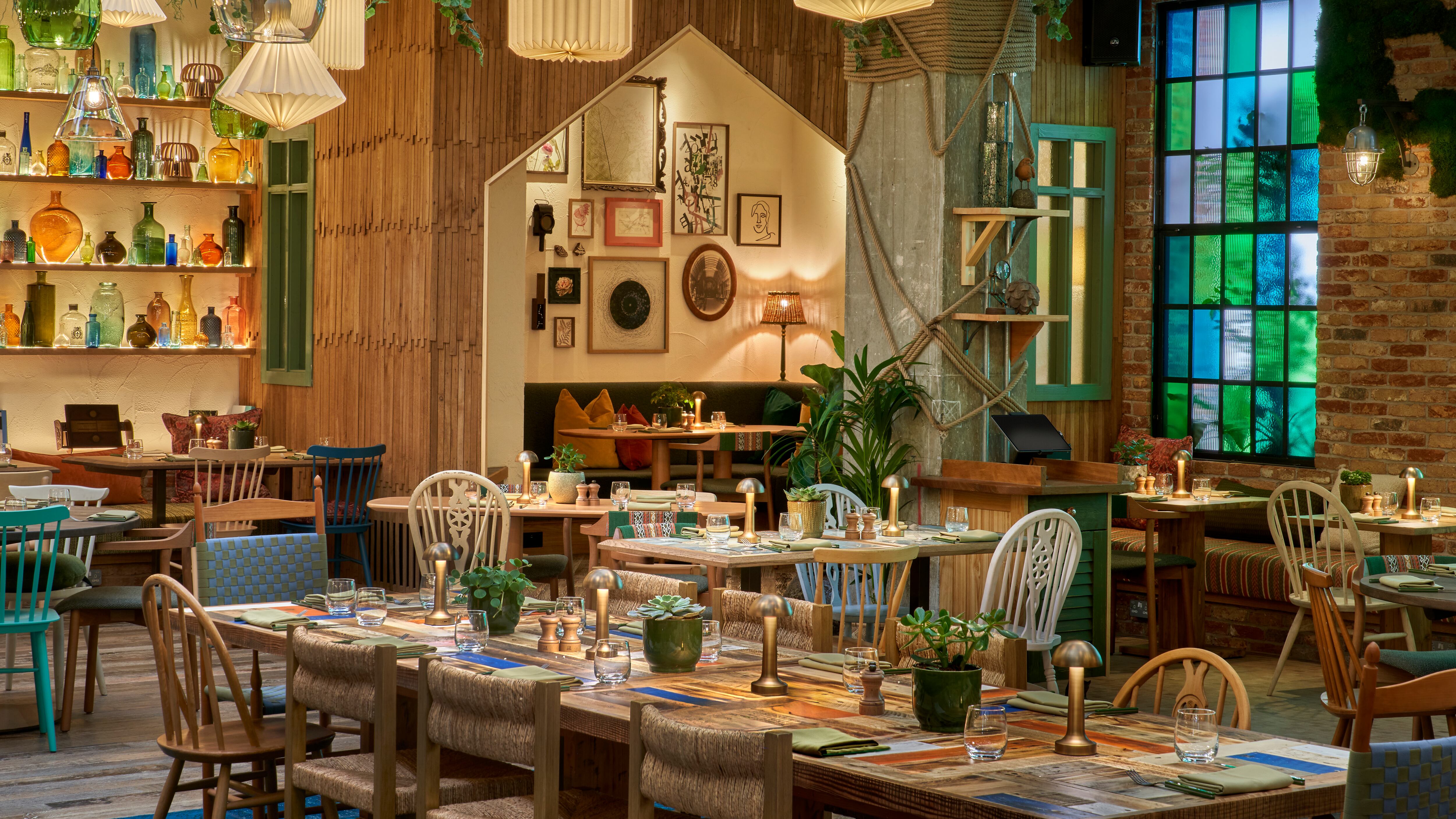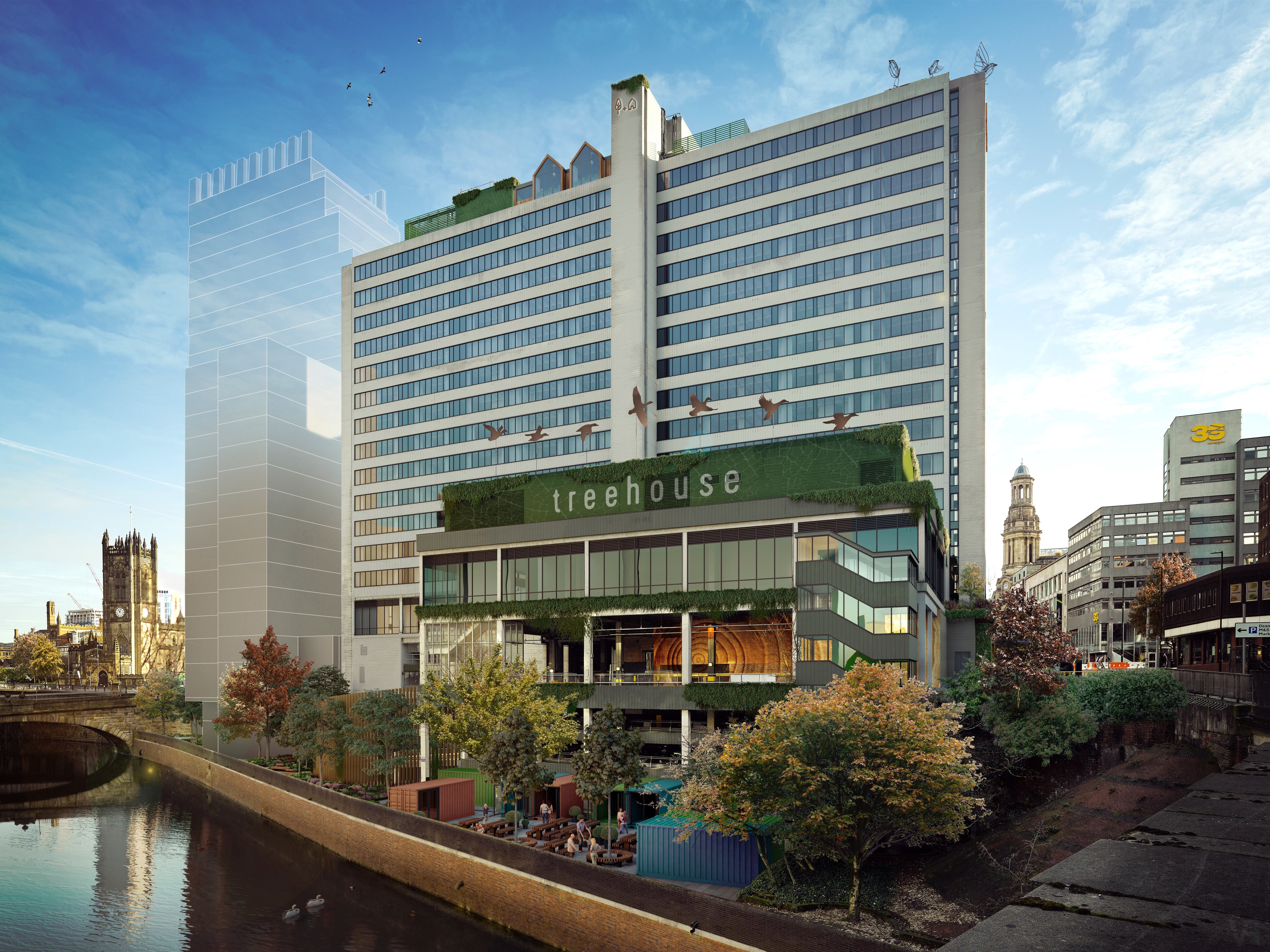Pip is quite different to your previous restaurant projects…
This is certainly new territory for me. Aumbry and The Creameries were tiny places where I was responsible for absolutely everything, from the books to making sure we didn’t run out of toilet roll. I’ve never worked for an organisation of anything like this size (Treehouse Hotel Manchester is owned by Starwood Hotels) and Pip is a seven-days-a-week, 365-day a year operation serving hundreds of people a day. It’s been a culture shock but it’s also been brilliant because there’s an incredible support structure around me which means I can focus on the things that I am good at.
What’s the thinking behind the name?
We’re at the base of the hotel, the little pip at the root that it all springs up from. I like the name; it’s a nice, friendly-sounding word. What I have created isn’t too far away from my previous restaurant projects in that we explore our regional cooking traditions, rely heavily on local produce and look to minimise waste wherever we can. But it’s on a much bigger scale. Pip has an 80-cover dining room but we also service the bar and lobby area. We’re on softs at the moment, we should be fully up and running next week. Pip will soon be joined by a restaurant from Sam Grainger (Sister Moon) and a cocktail bar called The Nest in Treehouse.

What’s on the menu at Pip?
Some of my favourites include cheese gougères; split pea chips with mushroom ketchup; oysters with kimchi liquor; cured and smoked wood pigeon with lemon thyme granita and mustard leaf; butter pies made with celeriac (rather than the more traditional potato); and a treacle tart made with a The Fat Duck recipe I’ve been using for the best part of 20 years.
How is the menu structured?
The menu is designed in such a way that people can either have a traditional a la carte meal or share. We will also be offering a breakfast menu that combines obvious things with locally-inspired dishes such as Derbyshire oatcakes (which are a bit like pikelets) served with a cheesy, mustard-y butter, ham and a fried egg. We’ve spent a lot of time working on finding suppliers that have the right ethos. We’re sourcing our fruit and veg from lots of small local growers and all the meat we’re using comes from regenerative farms.
Large hotel companies aren’t usually set up to work with tiny artisanal suppliers…
It’s not been straightforward. Big companies have systems in place that are designed with much larger suppliers in mind. But the will is there so we have made it work. Treehouse Hotels take sustainability seriously, it’s not just greenwashing, which is why I wanted to work with them in the first place. We have structured the kitchen and the menu in such a way that we use absolutely everything that comes into the kitchen using whole animals in some cases. For this reason, our Sunday roast won’t just be sirloin, we will offer all sorts of different cuts to make full use of the carcass. This is not a common approach in hotels but it was important to me that we demonstrate that it could be done. We spend more on labour but we save on food costs.
Tell us about your background
I worked for Heston (Blumenthal) during the early days of The Fat Duck (from 2002 to 2006) leaving as sous chef. Latterly, I was focused on historical R&D for The Fat Duck and The Hinds Head (which launched in 2004). Having the opportunity to work with amazing food historians and other experts has informed my approach to cooking ever since. I had Aumbry in Prestwich from 2009 and 2014. Manchester was a culinary desert back then, it’s incredible how much things have changed over the past 10 years. I opened The Creameries (in Chorlton) in 2018 but closed it in 2022. The restaurant was well-received but we never recovered after Covid, people just didn’t come back in the numbers we needed. Treehouse Hotel Manchester has been delayed for about two years due to issues with the build. It’s great to finally be back in the kitchen.

Sexism in kitchens is a hot topic right now. What is your take?
I thought the comments Jason Atherton made were ridiculous. It’s impossible he’s never seen sexism in his kitchens. I have experienced so much of it myself and so has every woman I’ve ever known in the industry. We’ve all got stories about sexism and some of them are awful.
What sort of thing?
It ranges from everyday stuff like people coming into a kitchen and always assuming that it is the male chef that is in charge to very serious things like bullying and sexual assault. It’s a huge problem that has pushed many women out of an industry that is already a difficult one to work in. There are so many obstacles to women working their way up to leadership roles. The hours are brutal, the money often isn’t great and it’s difficult to work it around having a family. Hospitality has got to be one of the industries with the fewest women in senior positions. The Michelin awards being a case in point. Not a single woman I know was surprised by that picture.
What’s the solution?
I’d rather that comment hadn’t been made, but at least it’s started a conversation because enough is enough. There is no reason a woman can’t be just as good a chef as a man. They are being held back by ignorance and prejudice. Change needs to come from the top, and kitchens are largely led by men. There are lots of people – including men – that are working hard to stamp sexism out and improve working conditions but more needs to be done. We need a campaign like the Government’s recent Enough campaign (which was designed to help stop violence against women and girls). Bad behaviour needs to be called out.
Do you have many women in your team at Pip?
Sadly it’s been very difficult to recruit women, particularly for senior roles. I’m also a bit conflicted. Encouraging other women into the kitchen feels like leading lambs to the slaughter. I might run my kitchen in a progressive way, but what about the next place?
How is Eat Well MCR going?
We’re are looking to acquire our own premises soon to support our work providing meals to people facing hardship in and around Greater Manchester. We have delivered 130,000 meals so far but it’s not so much about volume for us. There are lots of brilliant charities doing a great job getting people the calories they need but we are a collective of chefs and hospitality people who want to treat people with high-quality, restaurant-standard food.


